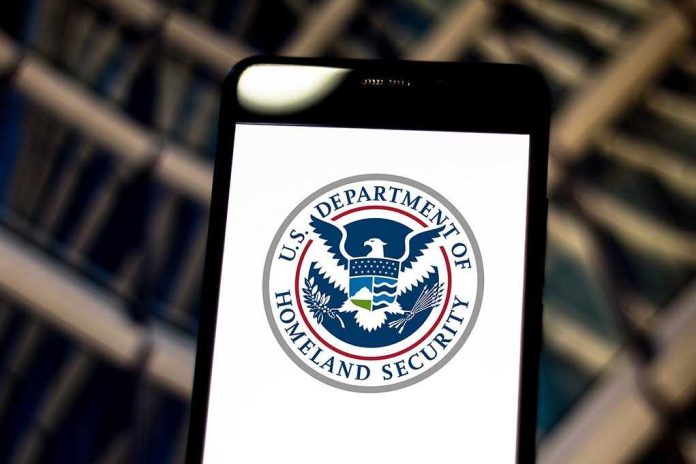
The House Homeland Security Committee warns that Chinese drones have evolved from surveillance tools to weapons of mass disruption, posing imminent threats to American critical infrastructure and national security.
Key Takeaways
- Legislation being drafted would require DHS to produce annual threat assessments on foreign adversaries’ drone capabilities for surveillance, kinetic strikes, and chemical attacks on U.S. soil.
- Chinese drone manufacturers DJI and Autel control nearly 90% of the global drone market, with DJI drones widely used by U.S. law enforcement despite security concerns.
- Over 600 unauthorized drone flights were reported above U.S. military facilities between 2022 and 2024, raising serious concerns about espionage and sabotage.
- The House recently passed legislation in the NDAA FY2025 to ban the sale of DJI drones in the United States after federal agencies warned of critical infrastructure and national security risks.
Growing Chinese Drone Threats Prompt Congressional Action
The House Homeland Security Committee is developing new legislation to address the escalating national security threat posed by Chinese-manufactured drones. The bill would mandate the Department of Homeland Security to conduct comprehensive annual assessments of drone threats from foreign adversaries and terrorist networks, with a particular focus on China’s expanding capabilities. These assessments would specifically evaluate potential uses of drones for surveillance operations, direct kinetic strikes, and even chemical attacks within U.S. borders. This legislative effort comes amid mounting evidence that America faces a significant vulnerability gap in defending against sophisticated drone technology.
“Drones are no longer just tools of surveillance, they have become weapons of disruption, sabotage, and intimidation,” said Rep. Carlos Gimenez (R., Fla.), the chairman of the Subcommittee on Transportation and Maritime Security.
Recent global events have spotlighted the devastating potential of drone warfare. A January attack by an Iranian-aligned militia in Jordan killed three American servicemembers, while combat drones have been prominently deployed in conflicts by Ukraine and Israel. These incidents have accelerated congressional concerns about America’s preparedness. China has been rapidly expanding its fleet of militarized drones and increasing activity near Taiwan, creating additional urgency for legislative action to protect U.S. infrastructure and military assets from similar threats.
Critical Infrastructure and Military Facilities at Risk
The Department of Defense has documented over 600 unauthorized drone flights above U.S. military facilities between 2022 and 2024, raising alarming questions about who is operating these aircraft and for what purpose. Chinese-owned farmland near American military bases presents a particularly concerning potential launch site for surveillance or attack drones. The committee has also highlighted specific vulnerabilities in the Coast Guard’s capabilities to counter drone threats, with Rep. Gimenez requesting a classified briefing on these deficiencies by July 18.
“I’m deeply concerned that the U.S. Coast Guard lacks the tools, training, and authority necessary to counter the growing threat of drone warfare,” said Gimenez the Free Beacon.
The Coast Guard’s fleet in the Middle East faces particularly acute drone vulnerabilities. With American maritime assets operating in regions where hostile actors have demonstrated advanced drone capabilities, these vessels could become targets for surveillance or direct attacks. The legislation aims to address these gaps by improving detection, deterrence, and defensive capabilities across all branches of homeland security. Protecting critical infrastructure including ports, power plants, and transportation hubs, represents a central focus of these efforts.
Chinese Manufacturers Dominate Drone Market Despite Security Risks
A particularly troubling aspect of the drone security challenge is China’s dominance of the commercial drone market. DJI and Autel, both headquartered in Shenzhen, control nearly 90% of global drone sales, with DJI drones widely used by state and local law enforcement across America. The House Committee on Homeland Security is now urging the Department of Homeland Security and Department of Energy to declassify information about the national security threats posed by these Chinese manufactured drones after Sandia National Laboratories identified significant risks.
There is a strong public interest in understanding the threats posed by PRC manufactured drones.
Multiple federal agencies have issued warnings about Chinese-made drones, with a 2017 alert from Homeland Security Investigations specifically cautioning that DJI drones might be providing sensitive U.S. data to the Chinese government. In December 2020, DJI was added to the Department of Commerce’s Entity List, restricting U.S. technology exports to the company. The House recently passed the National Defense Authorization Act for Fiscal Year 2025, which includes a ban on the sale of DJI drones in the United States, a significant step toward addressing this pervasive security concern.
Upcoming Hearing to Address Evolving Drone Warfare Threats
To further address these threats, Chairman Gimenez has announced a hearing titled “Surveillance, Sabotage, and Strikes: Industry Perspectives on How Drone Warfare Abroad Is Transforming Threats at Home,” scheduled for July 8, 2025. The hearing will bring together industry experts including leaders from DroneUP, D-Fend Solutions, and AeroVironment to discuss how drone warfare developments abroad are reshaping security threats within American borders. With the United States preparing to host high-profile international events, the timing of this security initiative is particularly critical.
“It’s no secret that drones are increasingly being weaponized by adversarial nations and terrorist organizations to surveil, sabotage, and disrupt world peace,” said Chairman Gimenez. As the United States prepares to host high-profile international events, and as our greatest adversaries, Russia, Iran, and Communist China, work to undermine American interests, we must act now. One drone in the wrong hands can threaten lives and cripple critical infrastructure such as air and seaports. This Committee will continue taking proactive steps as drone technology evolves to protect our airspace and ensure the safety of our communities.
House Homeland Security Republicans are leading multiple efforts to address threats from Chinese drones, including legislation to ban DHS from using or financing drones from China and other adversarial countries. These comprehensive measures reflect a growing recognition that drone security represents one of the most pressing and rapidly evolving threats to American national security in the modern era.














